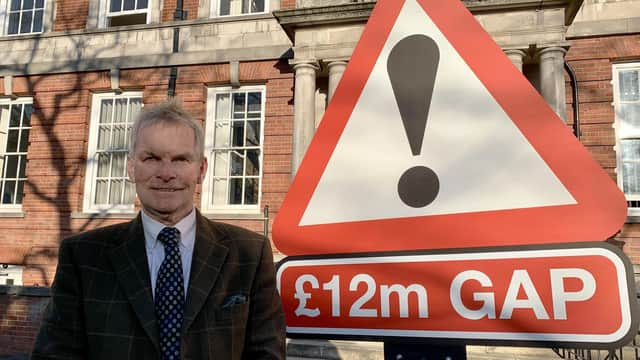Council’s hopes for fairer funding dashed


The funding announcement on Monday, December 19 included a £60 billion package for councils nationally and government said it equated to a nine per cent increase on last year.
However, despite welcoming some extra funding, council leaders have said Lincolnshire continues to be recognised as a low council tax base authority (lower population), and to take advantage of the most funding, council tax could need to rise by five per cent.
Advertisement
Advertisement
They have also hit out at a lack of funding for highways again, despite campaigns earlier this year making it clear the county’s roads are at risk.
The authority is still working through the detail as it considers its budget due to appear before councillors in January.
Director of Resources at Lincolnshire County Council, Andrew Crookham, said: “As we expected, with additional costs pressures, the total funding from the government won’t be enough to run our services next year.
“We’ll be putting together financial options to be considered by the council’s executive early in the new year.
Advertisement
Advertisement
“With increased demand for services and inflation running at 10 per cent, these are likely to include using reserves, increasing council tax and finding savings – or most likely a combination of all three.”
As part of the settlement, the government will give LCC around £19 million extra for social care in a bid to tackle challenges such as increased demand and cost pressures.
However, Mr Crookham said: “This additional money is distributed through a formula that recognises Lincolnshire as a low council tax base authority.”
Council leader Coun Martin Hill said an “inevitable funding gap” means decisions will have to be made.
Advertisement
Advertisement
“Whilst the statement appears to show an increase in spending power for us of nine per cent, that is reliant on us increasing the council tax by the full five per cent – a three per cent council tax rise and a two per cent social care precept,” he said.
“Much of our government funding is in the form of grants, and these can be taken away at any point, and this is not as secure as money from our base funding.
“So although the additional funding for social care is very welcome, I am disappointed that fairer funding has once again been kicked into the long grass until 2025 – having originally been promised in 2019. This is vital to securing long-term financial stability for councils.”
He added that he was “disappointed” that highways funding had not been properly addressed “again”.
Advertisement
Advertisement
“Having well maintained roads is so important for safety and connectivity in our rural county,” he said.
Levelling Up Secretary Michael Gove said: “We recognise the pressures councils are facing right now and this spending boost will provide the support and funding local authorities need to continue delivering first rate public services.”
The provisional settlement will go to consultation until January 15. Final figures will then be confirmed.